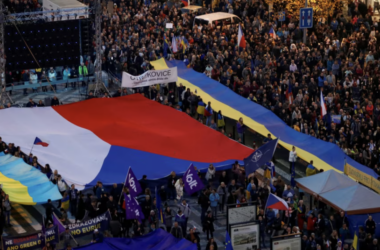German Chancellor Friedrich Merz is throwing his full weight behind a European Union push to officially ban the Nord Stream gas pipelines, aiming to shut the door once and for all on any future use of the controversial infrastructure. If the EU sanctions go through, any chance of reactivating the pipelines to resume gas deliveries from Russia would be dead in the water.
According to three sources familiar with the discussions, Merz is determined to avoid any public debate on the issue. For him, locking Nord Stream into the EU’s sanctions framework would be a convenient way to defuse what one aide reportedly called a “political landmine.”
“Putting it on the sanctions list takes the question off the table entirely,” one official noted, suggesting it removes the possibility of national pushback or parliamentary negotiation down the line.
This latest maneuver places Berlin once more in firm alignment with Brussels’ hardline stance against Moscow, prioritizing European unity and continued support for Ukraine—even as it risks fueling criticism at home over energy security and democratic transparency.
The move marks yet another chapter in the Nord Stream saga, a project once central to Germany’s energy supply but increasingly viewed through the lens of geopolitics and security. Since its mysterious sabotage in 2022, the pipeline system has become as much a symbol of strategic fault lines as it was ever a tool for gas transit.
Critics argue that placing such a significant national infrastructure decision in the hands of EU sanctions policy effectively sidesteps domestic input and leaves ordinary Germans with little say in the matter—particularly at a time when energy costs remain a top concern.
Still, Chancellor Merz appears resolute. By backing the Nord Stream ban, his government is signaling that defending Ukraine and isolating Russia take precedence, even if that means permanently severing one of Germany’s most controversial energy ties.




